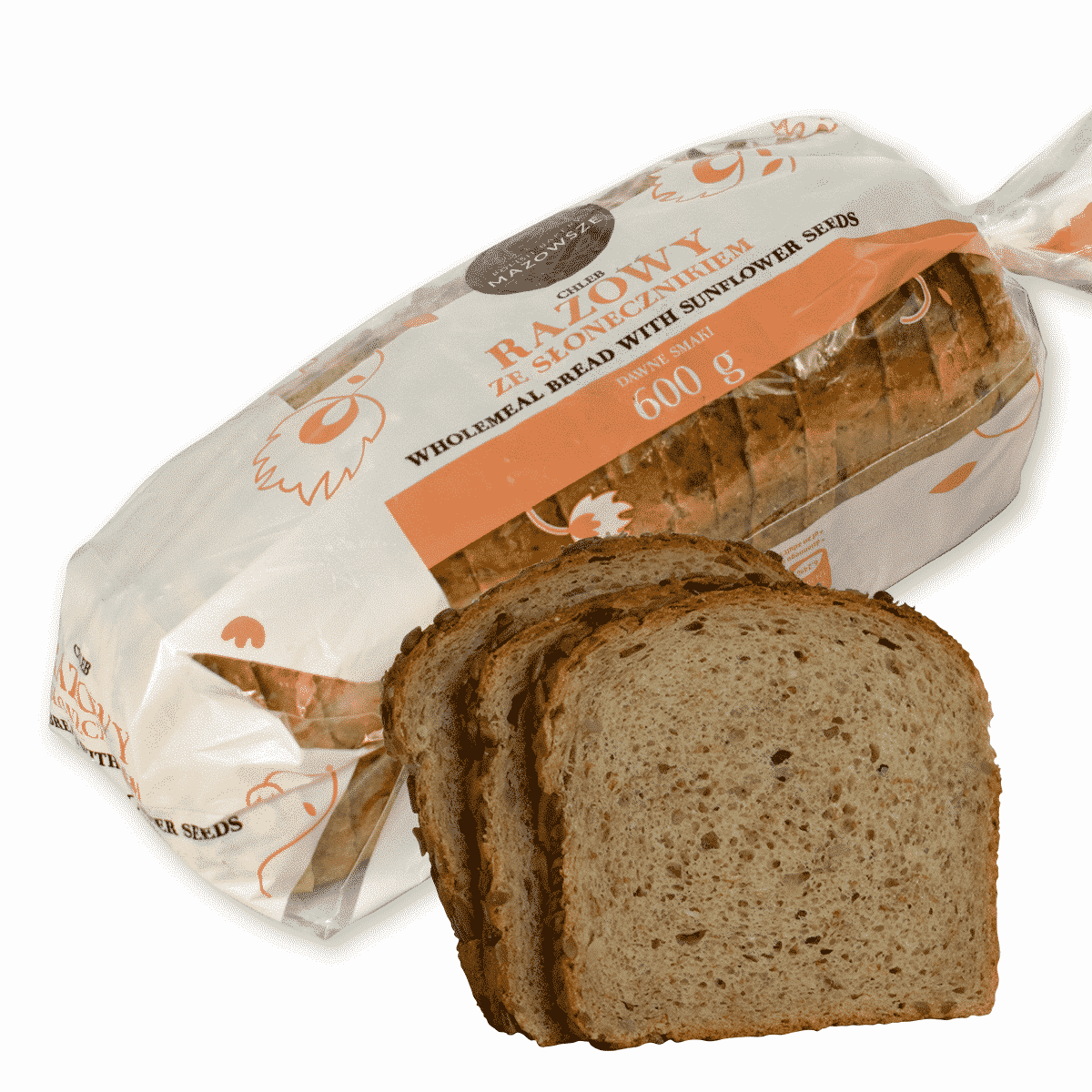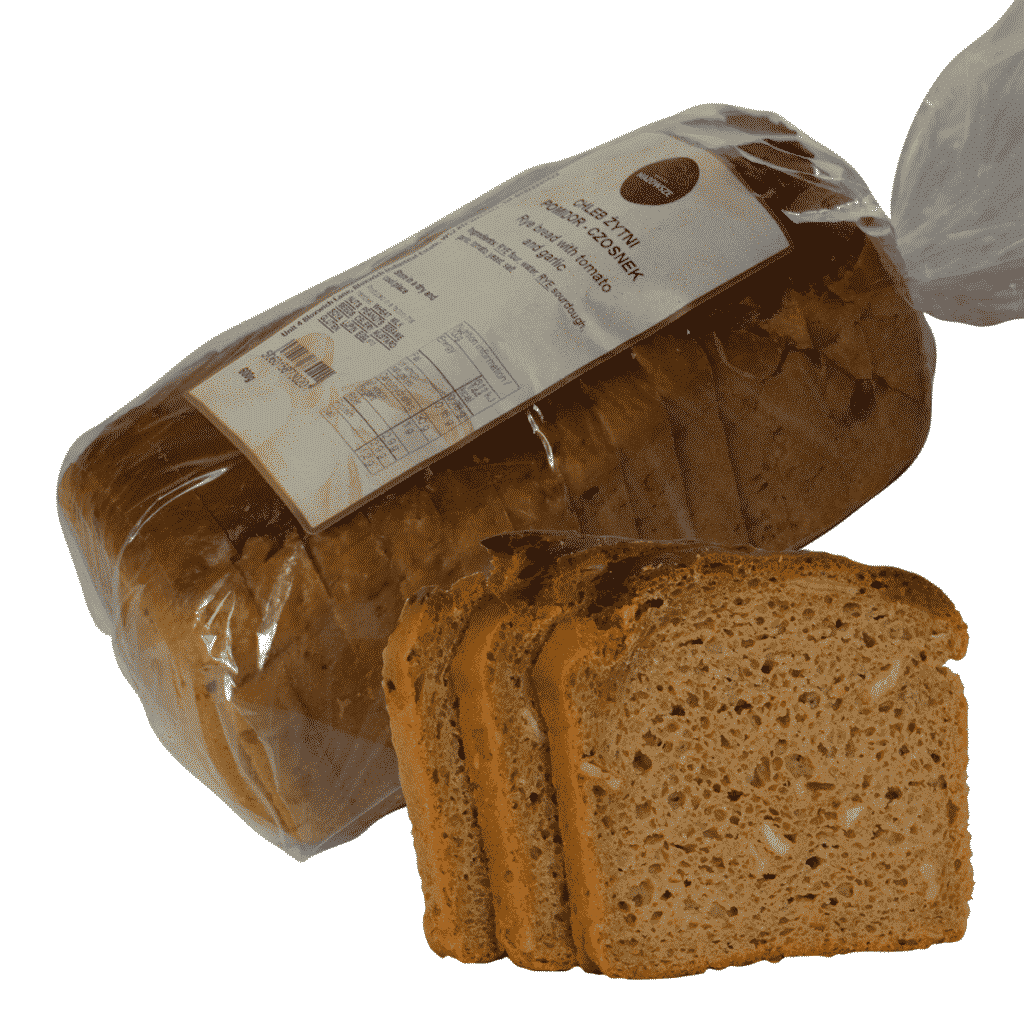Bread is one of the main ingredients of our diet and part of our tradition. Unfortunately, the low-quality products produced in some bakeries make us often wonder whether bread is healthy. Below are some facts about bread and the benefits of eating it.
We have eaten bread for centuries.
For over 10,000 years, it was initially a flat, hard cake and did not resemble the present loaf with a crispy crust. It was made soft and plump by a leaven, allegedly invented entirely by accident in Egypt.
Centuries ago, cakes resembling bread were baked in ashes, stones, sheets and finally ended up in the oven.
How many ovens, so many loaves
Today, there is a great selection of bread available; it is difficult to list them all. Our offer includes both sourdough and yeast, incl. rye bread, sunflower bread, wholemeal bread, spelt bread and many flavoured bread. Each provides the body with various ingredients needed to function properly.
Check out the other bread in our catalogue.
So… Is bread healthy?
Grain products, including bread, are in second place in the food guide (www.nhs.uk), right after fruit and vegetables. So they are an essential part of our diet.
When answering the question of whether bread is healthy, it should be known that the micro and macro elements are beneficial to health. Dark bread contains carbohydrates, energy, vitamins (mainly from group B), and minerals (copper, zinc, iron). In addition, it contains one more vital component – fibre that has a positive effect on our intestines and the work of the digestive tract. Bread enriched with grains (including sunflower, linseed, pumpkin or nuts) additionally supplement our diet with fatty acids.
Which bread to choose?
We usually buy bread according to our taste preferences. However, when choosing it, it is also good to take into account our health and age:
Whole grain bread:
- Releases energy more slowly
- It is more filling
- Helps to maintain a healthy body weight
- Especially recommended for people on a diet, suffering from constipation or heart disease
- More difficult to digest for the stomach, therefore it is not recommended to eat only wholemeal bread.
Wheat bread:
- Light
- Provides energy faster
- It is perfect for people struggling with digestive system problems
- Contains the least nutritional value.
Rye bread:
- Contains important nutrients
- Recommended for obesity
- It is difficult to digest
- It is not recommended to eat rye bread solely.
Mixed bread:
- baked with wheat and rye flour
- It contains more fibre, vitamins and minerals than wheat bread
- it is suitable for children and the elderly.
Sourdough bread:
- has a better effect on our digestive tract than those baked exclusively with yeast. This is because they populate the intestines with good bacteria.
Healthy, but only of good quality!
To sum things up, it should be said that the bread is healthy and we can confidently reach for it, provided that it is of good quality. We will recognise it after:
- Composition (any additives apart from flour, water, salt, yeast or leaven reduce the quality)
- Weight (good quality bread is heavy)
- Elasticity (should not be soft like a roll)
- Colour (rye bread should be grey-brown, red and chocolate are coloured with caramel and barley malt)
- Humidity (good quality bread are moist and stay fresh longer)
- The fact that it does not fall apart when sliced.
Where to buy it?
[wpsl template=”default” map_type=”roadmap” auto_locate=”true” start_marker=”orange” store_marker=”green” category=”” category_selection=””]
Links:
Wikipedia: https://en.wikipedia.org/wiki/History_of_bread
History of Bread: http://www.historyofbread.com/
Is bread bad for you? https://www.healthline.com/nutrition/is-bread-bad-for-you



0 Comments